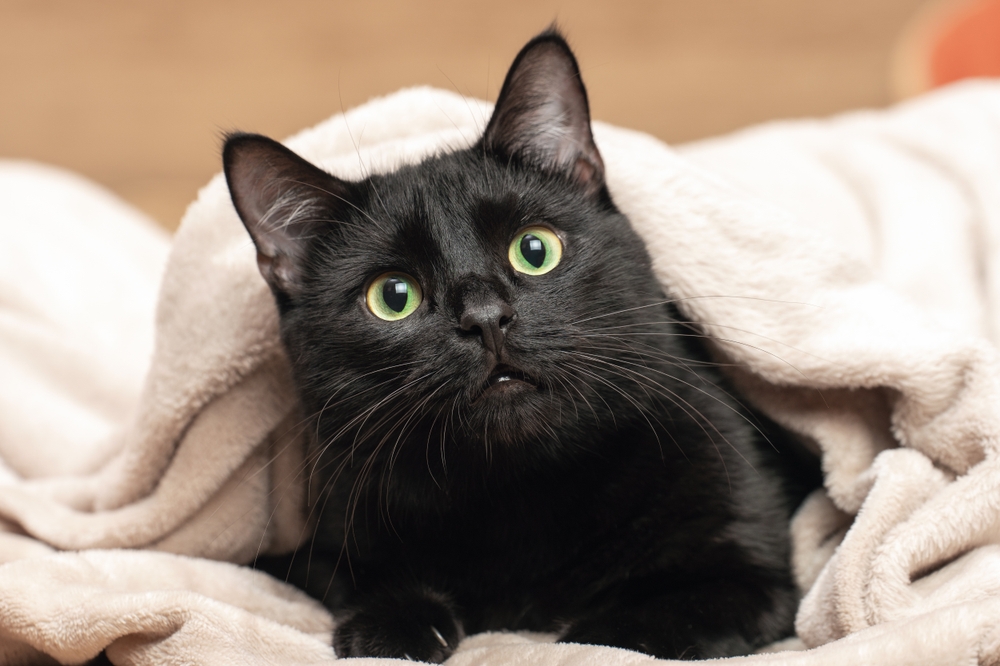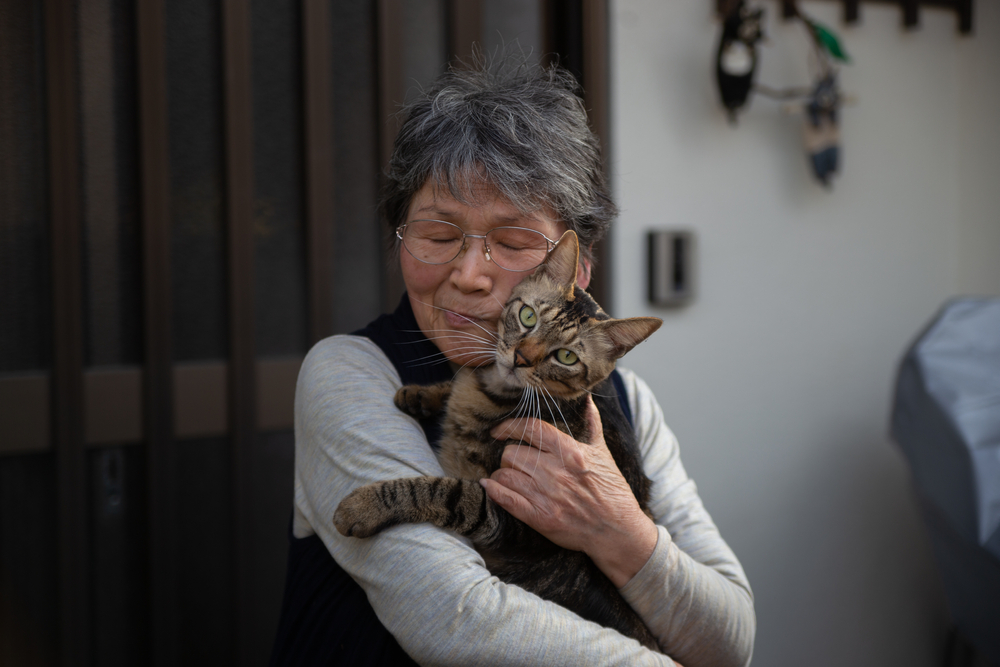Your cart is currently empty!
Owning A Cat Is Linked To A Lower Risk Of Having Heart Attacks

In the stillness of a cat’s purr or the rhythmic motion of a curled-up nap on your lap lies a surprising statistic: according to a long-term study by the University of Minnesota’s Stroke Institute, people who own cats are significantly less likely to die of heart attacks than those who don’t—by nearly 30%.
It’s an unexpected connection. Cats, often labeled aloof or independent, may seem unlikely allies in heart health. Yet mounting research suggests their calming presence might do more than soothe the soul—it may lower stress hormones, regulate blood pressure, and ease the strain on our cardiovascular systems.

The Study Behind the Claim
The most frequently cited research connecting cat ownership to heart health comes from the University of Minnesota’s Stroke Institute, which conducted a long-term study analyzing data from over 4,000 adults. Participants were tracked for a period of up to 10 years, during which researchers observed the incidence of fatal cardiovascular events—particularly heart attacks—among both pet owners and non-owners. What they found was both unexpected and compelling: individuals who had owned cats at any point in their lives were 30% less likely to die from a heart attack than those who had never owned a cat.
This association persisted even after researchers adjusted for conventional risk factors such as age, sex, smoking status, diabetes, and blood pressure. In other words, the protective benefit of cat ownership was not simply a byproduct of healthier people tending to own pets. The researchers proposed that some inherent quality in the cat-owner dynamic—possibly related to stress reduction—could be contributing to the decreased cardiovascular risk.
One particularly notable aspect of the findings was the difference between cat and dog owners. While both pets are known to provide companionship, the study did not find a similar reduction in heart attack risk among dog owners. This raised interesting questions about the unique psychological and physiological effects of feline companionship. Although the researchers were careful not to suggest a direct cause-and-effect relationship, they emphasized the strength and consistency of the association.

Why Cats, Specifically?
At first glance, it might seem counterintuitive that cats—often perceived as independent, even aloof—could have a more measurable impact on heart health than their canine counterparts. But researchers and behavioral experts suggest that cats offer a unique form of companionship that may be especially well-suited to reducing stress and promoting calm, both of which play critical roles in cardiovascular health.
Unlike dogs, which often require frequent activity and social interaction, cats are generally lower-maintenance. Their quiet presence and rhythmic behaviors—like grooming or purring—create a tranquil home environment. For people living alone or dealing with high levels of stress, this kind of companionship can be grounding. Cats don’t demand constant attention, yet they offer moments of affection, physical contact, and routine that can help regulate emotional states.
One theory focuses on the soothing effect of a cat’s purr, which falls within a frequency range (typically 25–150 Hz) that some researchers believe may promote healing. While the scientific evidence on the purr’s physiological impact is still developing, its calming effect on the human nervous system is widely acknowledged by pet owners and animal behaviorists alike. Interacting with a purring cat can help activate the body’s parasympathetic nervous system—the part responsible for rest and recovery—thereby reducing stress hormones like cortisol and lowering blood pressure.
Additionally, cats are especially popular among urban dwellers, older adults, and people with limited mobility—all groups that may be more vulnerable to heart disease and stress-related conditions. Because cats adapt well to smaller living spaces and don’t require outdoor exercise, they offer accessible companionship without adding lifestyle strain. In that sense, their very nature might make them better suited to quietly supporting heart health, especially for people who may not be able to manage the energy demands of other pets.
While the emotional bonds between humans and pets are complex and deeply personal, the distinctive ways cats engage with their owners—quietly, consistently, and without pressure—may offer just the kind of gentle, everyday comfort that helps keep stress and the heart in check.

Companionship as Preventive Care
In the realm of preventive medicine, we often focus on diet, exercise, and regular screenings—but emotional well-being is increasingly being recognized as a critical pillar of health. While pharmaceuticals and procedures dominate the conversation around heart disease, more subtle, daily influences—like the presence of a pet—can have long-term protective effects that are just beginning to be fully appreciated by science and public health experts.
Research in psychoneuroimmunology, a field that studies how mental states influence physical health, supports the idea that positive emotional connections can strengthen immune function, lower inflammation, and improve heart rate variability—an important marker of cardiac resilience. Having a pet like a cat provides a form of non-verbal social support that’s always available, without the unpredictability or complexity of human relationships. This stability contributes to a lower allostatic load—the wear and tear on the body caused by chronic stress.
Unlike more effort-intensive lifestyle interventions, cat companionship often fits naturally into daily routines. Feeding, grooming, or simply sharing space with a cat offers structured, predictable interactions that give the day rhythm and emotional texture. For older adults, especially those who may be experiencing loneliness or reduced social networks, this kind of companionship can be deeply protective. In fact, a report from the National Institutes of Health highlights that social isolation is as significant a risk factor for early death as smoking or obesity—making everyday connections, even with animals, a serious component of health promotion.
In short, the benefits of cat ownership aren’t just about affection or amusement. They represent a form of preventive care that’s emotional, physiological, and consistent—offering comfort that, while quiet, may be powerful enough to lower long-term risk for heart disease.

Not a Cure-All: A Balanced Perspective
While the connection between cat ownership and reduced heart attack risk is compelling, it’s important to approach these findings with perspective. Owning a cat is not a medical intervention, and it shouldn’t be seen as a substitute for proven methods of cardiovascular prevention, such as maintaining a healthy diet, exercising regularly, avoiding tobacco, and managing blood pressure and cholesterol.
Experts caution against overstating the health benefits of pets without considering the full picture. For example, the University of Minnesota study did show a lower risk of fatal heart attacks among cat owners, but it didn’t prove a direct causal relationship. The possibility remains that people who choose to adopt cats may already possess certain lifestyle traits—such as lower stress profiles or more stable home routines—that contribute to better heart health independently of pet ownership.
Moreover, while cats may bring joy and emotional support, they aren’t for everyone. Some individuals may experience allergic reactions, or find the responsibilities of pet care burdensome rather than beneficial. There’s also the ethical consideration: adopting a cat solely for health benefits, without a genuine intention to provide care and companionship, can lead to neglect or surrender, which ultimately harms the animal and defeats the purpose.
That said, for individuals who already enjoy the idea of feline companionship, the heart-health link can be seen as an added benefit—a gentle reminder that our emotional and physical well-being are deeply intertwined. Just as a balanced diet nourishes the body, nurturing relationships, even with animals, can support long-term resilience and recovery.
Ultimately, the takeaway isn’t that cats are a miracle cure, but that small, consistent sources of comfort and connection matter, especially in a world where stress-related illnesses are increasingly common. In that sense, a cat’s presence may not replace medical treatment—but it may very well complement it in a meaningful way.

Considering a Cat? Here’s What to Know
If the idea of a cat purring contentedly beside you while also offering potential heart health benefits sounds appealing, you’re not alone. But before rushing to the nearest shelter, it’s important to consider whether cat ownership is a good fit—for both your lifestyle and the animal’s well-being.
First, adoption should be a long-term commitment, not a health hack. Cats typically live 12 to 18 years or more, and while they’re generally lower maintenance than dogs, they still require time, attention, and resources. Regular veterinary care, quality food, a clean litter box, and daily interaction are all essential for a cat’s well-being. In return, they offer companionship that’s quiet, affectionate, and often profoundly comforting.
If you’ve never owned a cat before, it’s wise to learn about different cat temperaments. Some cats are social and playful, while others prefer solitude and limited interaction. Shelters and rescue organizations often help match animals to the right households, taking into account personality, energy levels, and environmental needs. Adopting from a shelter not only gives a home to an animal in need, but also allows you to choose a cat whose temperament suits your lifestyle.
Allergies are another consideration. Even people who love cats can experience sensitivities to their dander or saliva, which may cause respiratory symptoms or skin irritation. Spending time around cats—perhaps by fostering first or volunteering at a shelter—can help you gauge how your body responds before making a permanent decision.
